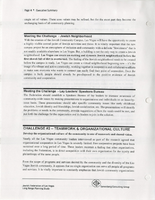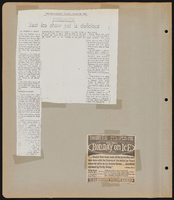Search the Special Collections and Archives Portal
Search Results
#70147: UNLV Lady Rebels Women's Basketball team takes on San Jose State during senior night in the Cox Pavilion March 6, 2015 at the University of Nevada, Las Vegas., 2015 March 06
Level of Description
Archival Collection
Collection Name: University of Nevada, Las Vegas Creative Services Records (2010s)
Box/Folder: Digital File 00
Archival Component
#70468: UNLV Women's Volleyball team defeated Portland State in five sets in the Cox Pavilion September 11, 2015 at the University of Nevada, Las Vegas., 2015 September 11
Level of Description
Archival Collection
Collection Name: University of Nevada, Las Vegas Creative Services Records (2010s)
Box/Folder: Digital File 00
Archival Component
#70074: UNLV Running Rebels Men's Basketball team drops a close one to New Mexico in the Thomas and Mack Center September 21, 2015 at the University of Nevada, Las Vegas., 2015 January 21
Level of Description
Archival Collection
Collection Name: University of Nevada, Las Vegas Creative Services Records (2010s)
Box/Folder: Digital File 00
Archival Component

Transcript of interview with Suzette Cox by Andrew Lazarus, March 15, 1981
Date
Archival Collection
Description
Text

Meeting minutes for Consolidated Student Senate University of Nevada, Las Vegas, September 6, 1990
Date
Archival Collection
Description
Text
Mario C. Monaco oral history interview
Identifier
Abstract
Oral history interview with Mario C. Monaco conducted by Kim Rhodes on March 12, 1981 for the Ralph Roske Oral History Project on Early Las Vegas. In this interview, Monaco discusses moving from Montana to Las Vegas, Nevada in 1958. Monaco discusses his career in the U.S. Navy as well as his career in education. He also discusses changes in the education system, including the required competency test and changes in attendance policy.
Archival Collection

Jewish Federation of Las Vegas long-range planning study, 2000
Date
Archival Collection
Description
Long-range planning study conducted and prepared by the Levenberg Consulting Group regarding the Jewish community of Las Vegas with particular attention to Jewish elderly, the economically disadvantaged, young adults, and Jewish education at all ages.
Text

Donna Robinson oral history interview: transcript
Date
Archival Collection
Description
Oral history interview with Donna Robinson conducted by Barbara Tabach on December 20, 2019 for the Remembering 1 October Oral History Project. Robinson begins by talking about her family and childhood in Pittsburgh, Pennsylvania. She talks about her family life and how she started working at the American Red Cross as a Disaster Program Specialist. Robinson describes her first disaster situation she worked through, later disaster situations, and the different training that is required in order to handle certain situations. Robinson then begins to talk about October 1, 2017, and how she tried to help as many people as possible that night. Then she talks about the long-term effects of the shooting and how it impacted the survivors and the community. She discusses the mental health aspect of the services Red Cross had and how it still continues to serve the community today.
Text


